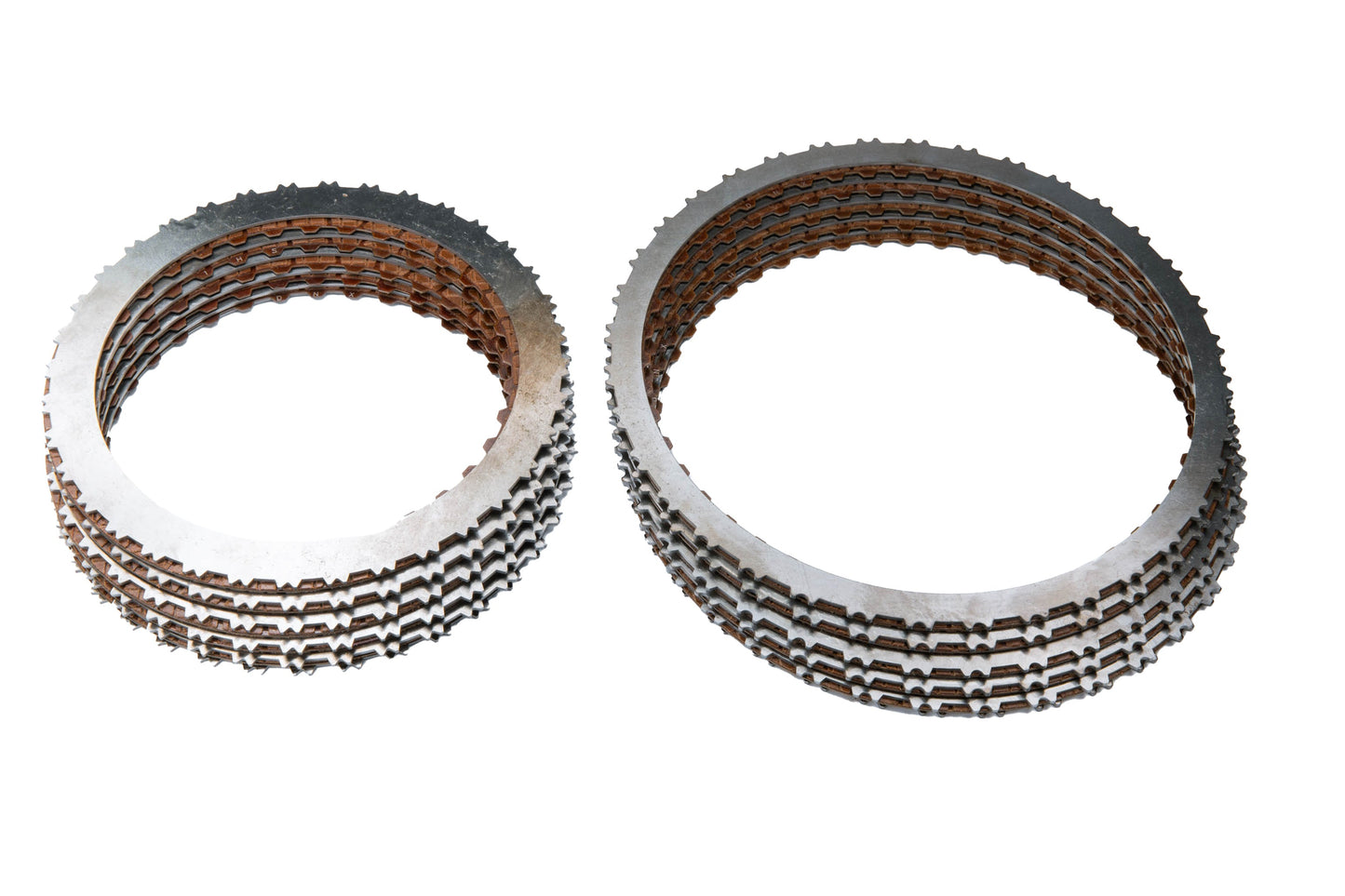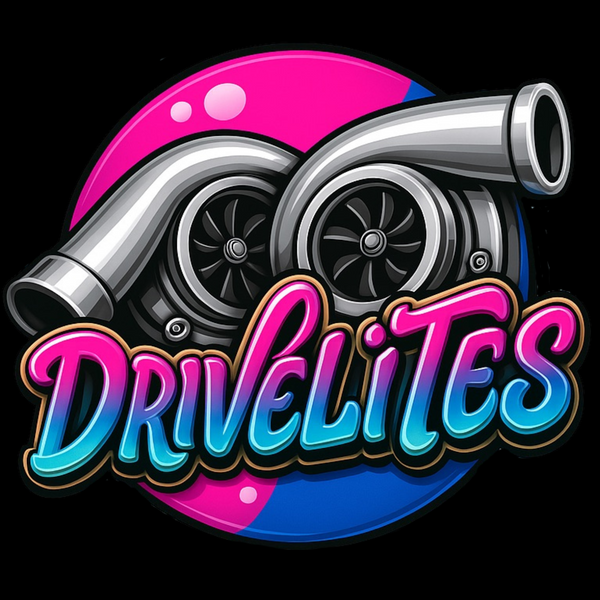
Description
RTMG Performance comes once again and introduces the new performance upgraded clutch pack for DSG DQ381 (0DW) stock clutches.
The Stage 1 kit includes +2 extra friction discs.
The RTMG Performance Upgrade Kit provides upgraded torque levels of up to 22% compared to the factory clutch for the Stage 1.
Useful Information About Maximizing Torque Handling in DSG Gearboxes
For DSG DQ381 gearboxes, torque transfer from the engine to the transmission occurs via a multi-plate clutch immersed in oil, hence referred to as a wet multi-plate clutch. However, it's not a single clutch but two separate clutches operating independently, controlled by a sophisticated system called mechatronics, which includes valves and sensors.
The clutches are linked to two shafts:
Shaft K1: Handles odd-numbered gears (1, 3, 5, 7).
Shaft K2: Handles even-numbered gears (2, 4, 6).
In neutral gear, the clutches do not transmit torque. When the driver selects first gear and releases the brake pedal, the mechatronics system progressively increases oil pressure on the first clutch (K1) to start the car. Similarly, when shifting to second gear, the system reduces the pressure on K1 and increases the pressure on the second clutch (K2), completing the shift in 400-1000 ms. The oil pressure ensures a smooth transition between gears.
The Issue with Enhanced Engines and Torque Slip
Under factory conditions, the gearbox operates with oil pressures between 10 and 12 bar, sufficient for standard torque loads. However, with upgraded engines producing higher torque, the oil pressure is not automatically increased to handle the extra load. This mismatch leads to clutch slip.
What is clutch slip?
When the engine is running at, for example, 6,000 RPM, but only 5,000 RPM is transmitted to the gearbox, this is slip. Since the clutch operates through friction, slip causes a significant increase in temperature between the friction materials, resulting in overheating, deformation, and ultimately failure.
Even minor slip (2-4%), which the driver may not notice, can wear down the friction materials, clogging filters and valves in the mechatronics system. Over time, this leads to malfunctions and eventual system failure.
Friction and Torque Transfer
Friction is a force that resists motion between two surfaces in contact. There are two types of friction relevant to clutches:
Static friction: Prevents movement when the clutch is engaged correctly (no slip).
Sliding friction: Occurs when there is slippage, leading to undesirable outcomes.
To prevent clutch slip:
Increase contact surface area: Achieved by adding more friction and steel plates (+2 pieces).
Enhance the coefficient of friction: Using steel plates with greater roughness improves grip.
Boost oil pressure: For performance applications, raising the oil pressure to 18 bar via a gearbox management remap (mechatronics) is essential.
Upgraded Clutches for Performance
Enhanced clutches address the first two factors by providing a larger surface area and a higher coefficient of friction. Adjusting oil pressure ensures better torque management and durability under high loads.
For remapping or further guidance on optimizing your DSG gearbox for your needs, feel free to contact our company.
* Tolerance values : 1.7 - 2 mm
** Engineer is responsible to measure the tolerances, clutch pack not covered by warranty.
Warranty
Our warranty terms are based on each manufacturer’s guidelines. Depending on the specific manufacturer, customers may be eligible to process warranty claims either directly with the manufacturer or through us. For detailed information or assistance with warranty inquiries, please contact our support team.
Shipping & Returns
Shipping time will be provided once your order has been processed. Please note that shipping options cannot be changed after your order has been placed.
For returns, kindly contact our support team for guidance. We'll walk you through the process and ensure everything goes smoothly.
Frequently Asked Questions
OEM (Original Equipment Manufacturer) parts are made by the vehicle’s original manufacturer and guarantee perfect fit and performance. Aftermarket parts are produced by third-party companies and may offer enhanced performance or cost savings, but compatibility should always be verified before purchase.
Yes, we work with a network of certified and approved workshops to ensure professional installation of your performance parts. Get in touch with us to find a recommended installer near you.
Yes, but it’s important to ensure they work together without causing performance issues. Some aftermarket parts are designed to complement OEM components, while others may require full system upgrades.
Yes, once your order is shipped, a tracking number will be emailed to you.
Orders can only be modified or canceled before they are processed. Please reach out to us as soon as possible.
If you're not completely satisfied with your purchase, you may return it within 7 days of receiving your order for a full refund, excluding delivery costs. Please note that this policy does not apply to special order parts. To qualify for a refund, items must be unused and returned in their original packaging.

